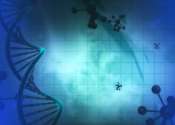Scientists model 3D structures of proteins that control human clock
In an Early Edition issue of The Proceedings of the National Academy of Sciences (PNAS) on April 9, 2009, the researchers report that they have been able to determine the molecular structure of a plant photolyase protein ...







